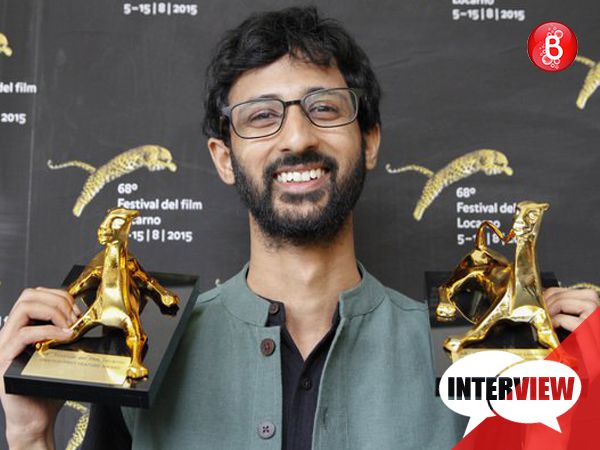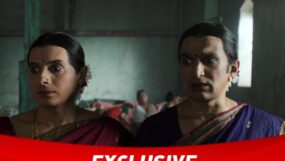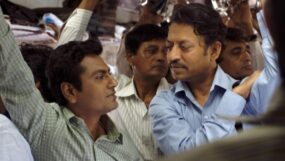
If it “suits the vision” of any of his future films, ‘Thithi’ filmmaker Raam Reddy, who has directed non-actors for his critically acclaimed movie, says he’d love to work with Bollywood actors Irrfan Khan and Nawazuddin Siddiqui.
His film ‘Thithi’ has fetched him a rare renown, and critics have hailed this Kannada film — about three generations of men reacting to the death of their 101-year-old patriarch — as a unique experience.
Excerpts:
Q. A remarkable achievement like ‘Thithi’ happens once in a while. Did you expect the film to make such an impact?
A. Never once while making the film did we expect it to receive such widespread acclaim as well as audience acceptance and appreciation. Making the film itself was such a tremendous challenge that all our focus was on managing to just complete the film to our satisfaction. We always intended to make a “warm” film that was realistic and observational, but at the same time cinematic with a humour that was particular to the world we were trying to create. I believe it is this playfulness that is at the core of the film’s national and international success.
Q. How difficult was it for you to gather the funds for the project?
A. I am lucky in this way because the primary production company that backed the film, Prspctvs Productions, was a production house started by my father, Pratap Reddy, and myself. The film was fulfilled by funding from Prsptctvs, and later from the support of Sunmin Park and J. Ethan Park, veteran Hollywood producers from Maxmedia based in California.
Q. You’ve received tremendous support and attention in Mumbai. How did that happen and do you think that support bolstered lifespan of’Thithi’?
A. Absolutely. I am overwhelmed by the support for ‘Thithi’ from industry leaders in Mumbai. Key supporters have been Anurag Kashyap, who was one of the first people in all of India to see ‘Thithi’. We met at the Locarno Film Festival, and since then, he has been a wonderful champion for the film. I also had the immense honour of sharing the film with Aamir Khan and Kiran Rao about ten days before the release. Also, an unforgettable moment in this journey is when Aamir Khan wrote five overwhelming tweets about “Thithi”; an honour that is hard to describe in words for a first-time filmmaker like myself.
Q. Who are the filmmakers you admire?
A. I admire so many filmmakers that it is hard to list a few. I learnt the language of filmmaking mostly from watching the world cinema of masters like Michael Haneke, Wong Kar-Wai and Emir Kusturica. At the moment, I have great admiration for many filmmakers from my generation such as Gabriel Mascaro, Emin Alper and Chaitanya Tamhane. I also have immense admiration for David Simon, the creator of the television show “The Wire”.
Q. “Thithi” features actors who don’t act. How did you get such natural non-performances from the entire cast?
A. All our filmmaking techniques were geared towards aiding performance. Eregowda’s (writer and casting director) relationship with the people and the place was key in creating a comfortable and familial environment. As a crew, we were extremely flexible and had to be highly reactive. We often did a lot of takes, and re-shot scenes some times.
In my treatment of film, I decided to eliminate blocking to help the non-professionals be more focussed on their body language and delivery rather than physical positioning. Therefore, when an actor moved, the camera moved with them at the same speed. Then there were a lot of direction techniques that were tailor-made for each actor depending on Eregowda and my reading of their personalities.
Q. Patriarchy and property paranoia are predominant in your plot. Do you see rural India as being governed by these two aspects?
A. ‘Governed’ is a strong word, but I do think they play a significant role in the rural social milieu. That is something we experienced first-hand while we were in our creative exploration period. All said and done, we did not attempt to make any political statements through the film; the core of the storytelling for me was to compare three generations of characters, two who are materialistically driven, and one who has transcended materialism. This for me is the spiritual core of the narrative, and the primary intention.
Q. How easy or difficult was it for you to shoot on location in such a village where basic amenities were not available?
A. We had a wonderful local productions team lead by Eregowda who looked after the entire crew and cast extremely well. The food on set was made with so much love, and everyone found a family within the community that made the film. We had collaborators from Holland, US, Mumbai, Kerala and many other parts but boundaries were quickly dissolved.
We did have to heat our hot water for baths in big metal pots and we managed with make-shift toilets, but it felt very natural for all of us – perhaps it was beautiful surroundings and clean air – and wasn’t a struggle at all.
Q. Do you think the language (Kannada) limits your vision in any way?
A. No, not at all. I love the particular dialect that the film has been made in. It has a musicality that is particular and nice to listen to. Also, with maintaining authenticity being the keystone of our process, the choice of the place was key to the quality of the final product, which in turn is reason for widespread recognition.
Q. Would you like to work with Bollywood stars?
A. Casting for me always comes second to the intention and story of the film. I would love to work with any actor who would fit my vision for the film, whether they are a star or not. I think that is the key to making organic and meaningful films. Having said that, there are many amazing Indian actors such as Irrfan Khan and Nawazuddin Siddiqui whose work I admire and I would love to work with.
Q. Which are the Indian films lately that according to you take our cinema forward the way ‘Thithi’ does?
A. Films like ‘Court’ and ‘Masaan’ are great examples of amazing debut films by Indian filmmakers that have made a mark on the international level. Also, both these films use realism as a stylistic choice, and this is something that resonates with me personally.
Inputs by IANS
Also Read: Aamir Khan praises Kannada film ‘Thithi’
























